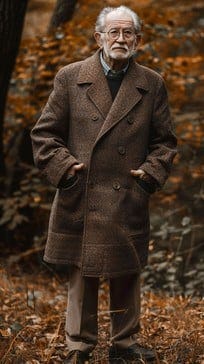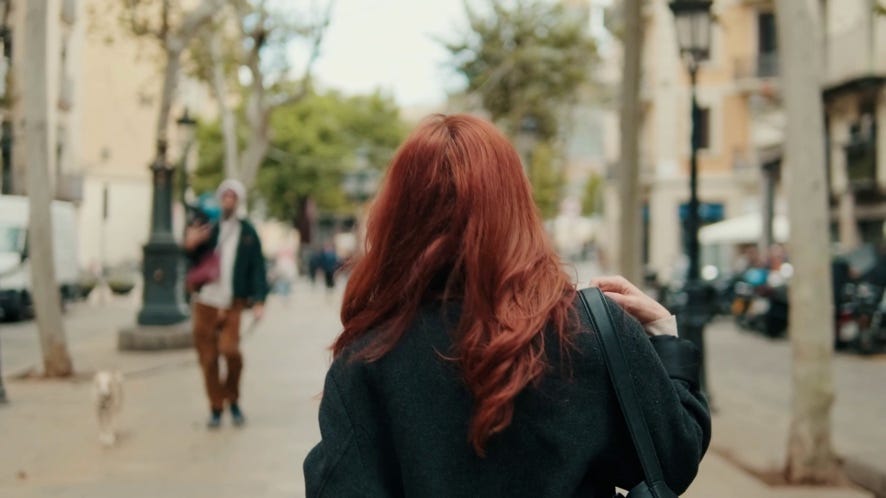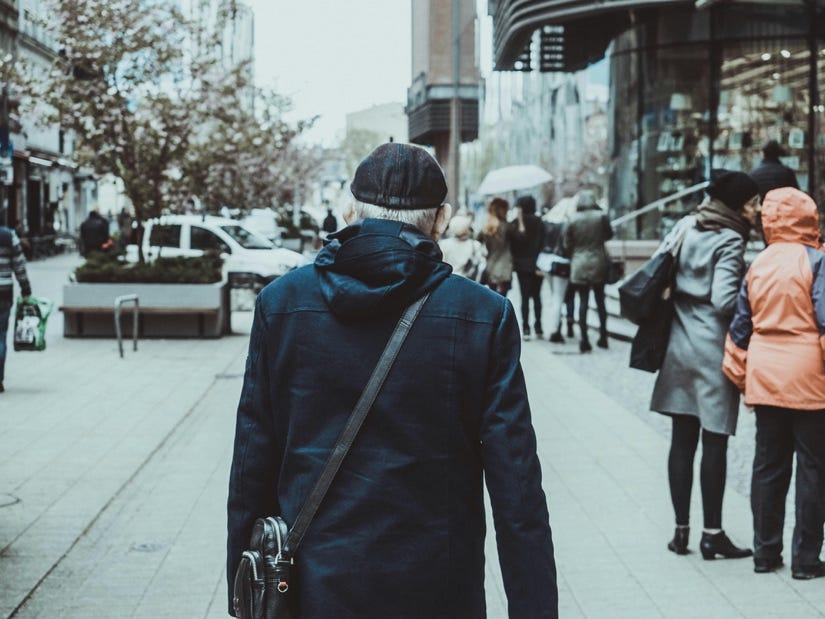Toronto, July 20, 2025
Big city walkers
There are a lot of people walking the streets of downtown Toronto, where I live, which is surprising given the rotten climate, hot as Hades in the summer, cold and icy in the winter. Most downtown Toronto walkers are A-to-B types, but some are different.
Years ago the Yorkville Walker walked the streets almost every day, all year round, no matter the weather. Winter and summer, he wore a buttoned-up brown overcoat. He walked briskly, alone, with purpose and discipline. He appeared to be in his late sixties or early seventies. He had a grey and white beard. He was smart in appearance, not at all dishevelled, not homeless or a street person. He didn’t seek attention. There was a sadness about him (or did I imagine that?) He walked, and he walked.
Who was the Yorkville Walker? No one I asked knew his name or anything about him. Why was he always walking? Did he have a destination in mind? Some guessed he was a retired professor, or perhaps a once-wealthy man who had fallen on hard times, but these were unconvincing explanations for his strange behaviour.
One day the Yorkville Walker disappeared. What happened to him? Did he die, or become seriously ill? Was he bedridden or housebound? The pavements were the poorer for his absence. Part of the streetscape had gone. In time, the Yorkville Walker became mythic. He is still talked about, two decades after he was last seen.
Myself, I perambulate a lot. I used to imagine myself a flâneur, strolling with insouciance through urban streets, savouring the city (see Endgame #71) . My friends rightly scoffed at this affectation. These days it’s more a matter of trying to stay upright and in motion for as long as possible. Now I walk, not to savour the city, but for exercise.
As I plod the pavements of Toronto’s Little Italy, where I now live, I frequently encounter another walker, an older Asian man. (I saw him yesterday, from the patio of the Café Diplomatico.) He is crippled, I assume by a stroke. He walks with difficulty, using a cane. His right leg barely functions, and he awkwardly swings it forward, in an arc, as he moves forward. His left arm appears paralyzed, and he holds it close to his body. He stares straight ahead as he progresses, his head slightly down. He progresses slowly, with short steps. He is determined and resolute. Like the Yorkville Walker, he is walking, always walking.
I often see the Little Italy Walker, as I call him. We pass each other on the sidewalk as we head in opposite directions. For a long time, I wanted to say hello, perhaps chat briefly, but his head was always bowed and I saw no opportunity. Human contact, it seemed, was not welcome. Then one day I managed to catch his eye. We nodded at each other and exchanged brief and courteous greetings.
There is unfinished business between me and the Little Italy Walker. I hope for a conversation. I think it will happen.
For two or three years I often passed another walker on the pavement, a woman in her sixties with long red hair. She shopped on College Street, going to-and-fro, to the grocer, the butcher, the pharmacy. Shyly, once or twice, I looked at her directly, inviting a connection, but she seemed lost in a world of her own. Or perhaps she was aware of my fleeting and benign interest and found it unwelcome. I have not seen the Woman with Red Hair for a while.
Then it came to me. I was one of them. When the Little Italy Walker, or the Woman with Red Hair, talked to their friends, they would say: “When I walk, I often see this old man wearing a cap. He seems lost in his thoughts. He tries to avoid eye contact. I wonder who he is. I call him the Old Man with a Cap.”
*****
A couple of reader comments on Newsletter #113 (“It's not easy being me: a guest column by David Wolinsky”)
From Michael Mendelson: “In high school I thought that getting more than 51% was a waste of time—or as I would say today—suboptimal. I would walk into exams having done no work, read nothing, and having skipped many classes. While sixty years later I never have anxiety dreams about being unprepared for an exam, I do have anxiety dreams about missing airplanes, although in real life I have actually missed several planes with no lasting consequences. Go figure!”
John writes from Aberdeen: “I have to love RF’s comment—it made me laugh. I’m attending my friend’s 70th later today and gifting him your book. There’s no way we could have guessed that we’d be there and others potentially on the guest list wouldn’t, even six months ago. It’s a very contingent place we inhabit these days. It may always have been, but didn’t seem so. I had started this comment thinking about failure dreams and almost forgot to mention them. Although I practised medicine for many years, I still occasionally wake up having lived anxious scenarios of attending exams with no preparation and little hope of success. It’s part of the human condition or psyche as prey animals I have always supposed: to be endlessly anxious. Anyway, what is all this stuff?”
And Ralph Frapp (“RF”), from Luton, Bedfordshire, writes again: “I’m sorry, but it’s all a bit of a mystery to me.”
*****
Available from Amazon in most countries, and from an increasing number of independent bookstores in Canada including Ben McNally Books in Toronto, Russell Books in Victoria, B.C., and Salt-Water Ballad Books in Port Medway, Nova Scotia.









Nice one Philip. Touching. I didn't know you lived in Little Italy now. I've had to stop walking for a while because of arthritis and vertigo so I'm definitely not the woman with the red hair that I used to be.
Why not speak to them as you pass. I often speak to people I've never met in bus queues,or sitting on a town bench, or even in a supermarket. They don't always reply, but I haven't lost anything by saying hello.